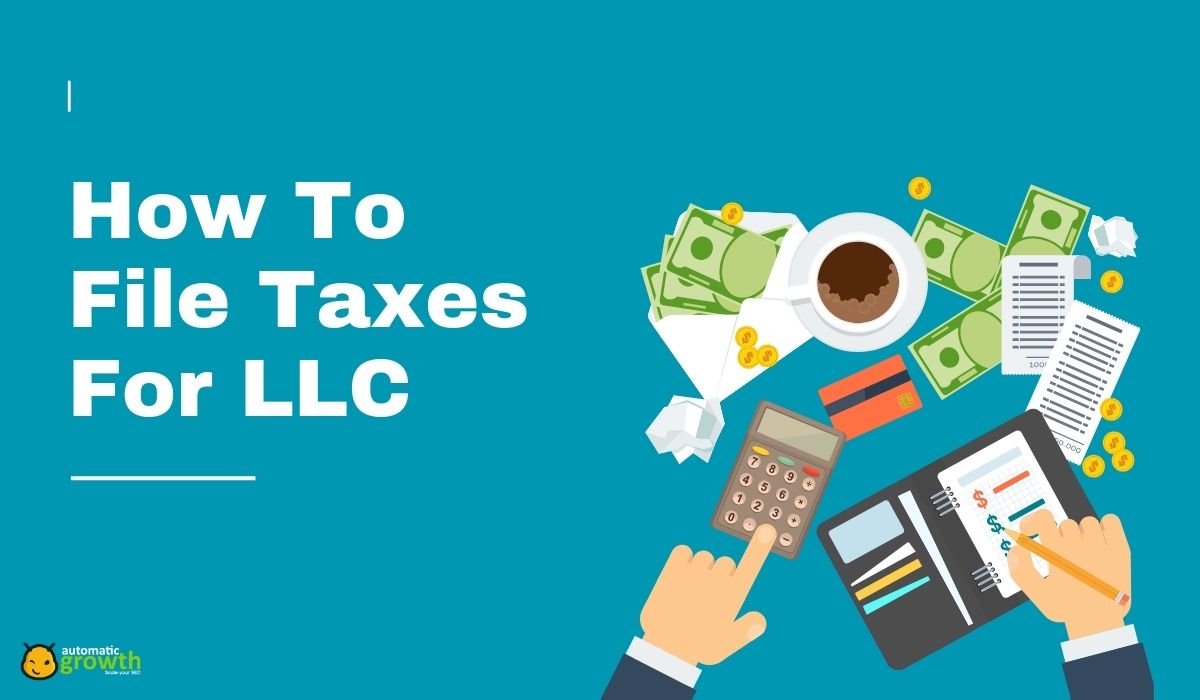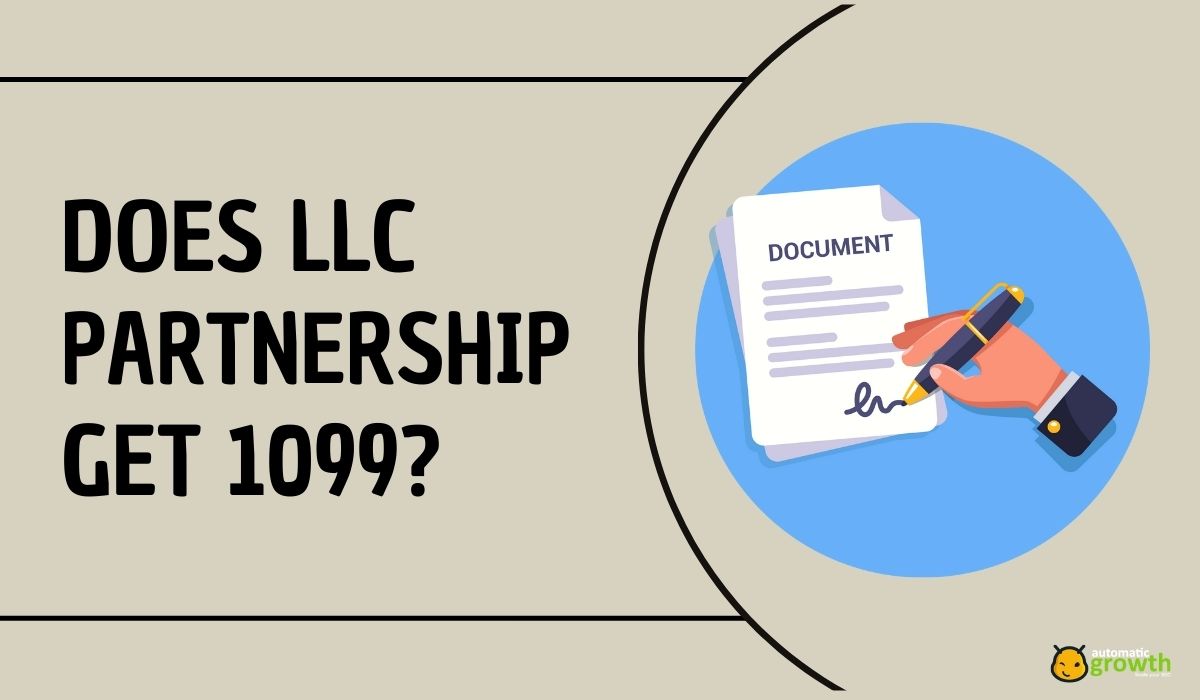As a business owner, filing taxes for your limited liability company (LLC) can be a complex and overwhelming task. With numerous rules and regulations to navigate, it's easy to make mistakes that could have serious consequences for your business. But fear not, as we are here to help you understand the process and ensure that you file your taxes correctly and efficiently.
In this article, we'll guide you through "How to file taxes for LLC," covering everything from understanding your LLC's tax classification to choosing the right tax forms and meeting filing deadlines.
The Process of Filing Taxes For LLC
Before you start filing your taxes, it's essential to understand how your LLC is classified for tax purposes. LLCs are unique in that they can be taxed in multiple ways depending on elections made by the LLC members. The most common tax classifications are:
-
Disregarded Entity: If your LLC has only one member (owner), it's considered a "disregarded entity" by default. In this case, the LLC does not pay taxes itself; instead, the profits and losses are reported on the owner's personal tax return using Schedule C of Form 1040.
-
Partnership: If your LLC has two or more members, it's classified as a partnership by default. The LLC files an informational return on Form 1065, and each member reports their share of profits and losses on Schedule K-1 of their personal tax return.
-
Corporation (C-Corp or S-Corp): An LLC can choose to be taxed as a corporation. If it elects to be treated as a C-Corp, the LLC files a corporate tax return (Form 1120). If it elects S-Corp status, it files Form 1120S and each member receives a Schedule K-1 showing their share of the corporation's income, deductions, etc.
-
Choosing the Right Tax Forms
Depending on your LLC's tax classification, you will need to file different tax forms:
Single-Member LLC (Disregarded Entity)
Form Required: Schedule C (Profit or Loss from Business).
As a single-member LLC, your business income and expenses are reported on Schedule C, which is attached to your personal tax return (Form 1040). This form requires detailed information about your business revenues, expenses, and net profit or loss.
The net income reported on Schedule C is subject to both income tax and self-employment tax. It's important to accurately document all business-related transactions to ensure correct reporting.
Multi-Member LLC (Partnership)
Form Required: Form 1065 (U.S. Return of Partnership Income) and Schedule K-1.
A multi-member LLC files Form 1065, an informational return that reports the LLC's total income, deductions, and losses.1 Each member's share of these items is reported on Schedule K-1, which is then used by members to complete their personal tax returns.
The LLC itself doesn't pay taxes; instead, profits and losses are passed through to members. It's vital to maintain clear records of the business's financial activities and accurately distribute the information on Schedule K-1 to each member.
LLC Taxed as a Corporation
Form Required: Form 1120 (U.S. Corporation Income Tax Return) for C-Corps; Form 1120S (U.S. Income Tax Return for an S Corporation) for S-Corps.
If your LLC is taxed as a C-Corp, it is treated as a separate tax entity, requiring the filing of Form 1120, which reports the corporation's income, gains, losses, deductions, and credits. For an S-Corp, Form 1120S is filed, and shareholders receive Schedule K-1s to report their share of the corporation's income and losses on their personal tax returns.
The major difference between C-Corp and S-Corp taxation lies in how profits are taxed. C-Corps face potential double taxation (corporate level and then on dividends to shareholders), while S-Corps have pass-through taxation, avoiding the double tax. It's crucial to understand these implications for tax planning and compliance purposes.
-
Meeting Filing Deadlines and Payment Requirements
After choosing the right tax forms based on your LLC's classification, the next crucial step is to meet the filing deadlines and payment requirements.
-
Single-Member LLCs and S-Corps: Generally, the tax return is due on April 15th, the same as individual tax returns. If April 15th falls on a weekend or holiday, the deadline is the next business day.2
-
Multi-Member LLCs and C-Corps: The deadline is typically March 15th. If this date falls on a weekend or holiday, the deadline is the next business day.
If you are unable to file by the deadline, you can request an extension. For most LLCs, this will extend the filing deadline to September 15th or October 15th, depending on the original due date. Remember, an extension to file is not an extension to pay. If you owe taxes, you are expected to estimate and pay by the original due date to avoid penalties and interest.
Making Payments
If your LLC expects to owe $1,000 or more when its return is filed, you should make estimated tax payments throughout the year. This is especially important for single-member LLCs and partnerships, as income from the business is passed through to the members' personal tax returns.
You can make payments online, by phone, or by mail. The IRS provides several electronic payment options, such as Direct Pay, EFTPS, or credit/debit card payments.
-
Gathering Necessary Documentation
“Keeping records organized and readily available simplifies the tax filing process.”
The next step is gathering all the necessary documentation to file your taxes accurately.
-
Income Statement (Profit and Loss Statement): This document summarizes your LLC's revenues, costs, and expenses during the financial year. It provides a clear picture of the business's profitability.
-
Balance Sheet: This provides an overview of your company's financial position, including assets, liabilities, and equity at a specific point in time.
-
Bank Statements: Collect all bank statements for the year. These will help you verify the income and expenses listed in your financial statements.
-
Receipts: Keep all receipts related to business expenses. This includes receipts for office supplies, business travel, utilities, rent, and any other business-related expenses.
-
Asset Purchase Records: If you purchased any assets like equipment or vehicles for your business, keep these records handy. They are necessary for calculating depreciation. For assets already in use, maintain updated depreciation schedules.
-
Payroll Records: If your LLC has employees, keep detailed payroll records. This includes salaries or wages paid, tax withholdings, and employee benefits.
-
Forms W-2 and W-3: You'll need to issue W-2 forms to your employees and submit a W-3 form to the Social Security Administration.
Other Important Documents
-
Loan Statements: If your business has any loans, include statements showing the interest paid, as it can be deductible.
-
Previous Year’s Tax Return: Having the previous year's return can help you with references and comparisons for the current year’s filing.
-
Records of Business Expenses: Thoroughly document all business expenses to take advantage of deductions. This includes travel expenses, home office expenses, and business meals.
-
Proof of Estimated Tax Payments: If you made estimated tax payments throughout the year, keep records of these payments.
-
Filing Your LLC Taxes
After gathering all necessary documentation and understanding the tax forms and deadlines, you are now ready to proceed with the final steps in filing your LLC taxes.
Use the gathered documentation to prepare your tax return. Ensure all income is reported and all allowable expenses are deducted.
Consider using tax software designed for business taxes. These programs can guide you through the process, help identify deductions, and reduce errors. If your tax situation is complex, consider hiring a tax professional. They can provide expertise in tax law, ensure compliance, and often identify additional tax-saving opportunities.
Review your tax return for any errors. Ensure that all income, deductions, and credits are accurately reported. Ensure that your return complies with current tax laws and regulations. This is particularly important if there have been recent changes in tax legislation.
Submitting Your Tax Return
-
Electronic Filing: E-filing is the fastest and most secure way to submit your tax return. It also provides immediate confirmation once the IRS receives your return.
-
Mailing: If you choose to mail your return, use certified mail to ensure it reaches the IRS and to provide tracking of your submission.
The IRS offers various electronic payment options, including Direct Pay, EFTPS, and credit or debit cards. If you are unable to pay the full amount, you may apply for a payment plan with the IRS.
-
Finalizing Your LLC Tax Filing Process
“Upon preparing your tax return with all necessary documentation, thoroughly review it for accuracy and compliance with tax laws.”
After organizing your documentation and preparing your tax return, conduct a final review. Ensure all information is accurate and complete. Once satisfied, submit your tax return via your chosen method, either electronically or by mail.
After filing, wait for confirmation from the IRS. This is especially quick if you e-file. Once confirmed, store all your tax documents, including a copy of the return and confirmation, securely for future reference.
If you receive any notices from the IRS regarding your tax return, respond promptly. For any complex queries or audits, consider seeking professional help.
Successfully mastering how to file taxes for LLC is a significant accomplishment for any business owner. This comprehensive guide has provided you with the essential steps to understand your LLC's tax classification, select the appropriate tax forms, meet crucial deadlines, and make necessary payments.
By gathering the required documentation, accurately preparing your tax return, and reviewing it for compliance, you can ensure a smooth filing process. Whether you choose to use advanced tax software or consult with a tax professional, the key is diligence and thoroughness. Remember, staying informed and organized throughout the year is vital to managing your LLC's taxes effectively. With these guidelines, you can approach tax season with confidence, knowing that your business is compliant and financially sound.
Unlock the secrets to starting your LLC with ease by diving into our detailed guide on the costs of starting an LLC. Get informed, get prepared, and take the first step towards successful business ownership today!
















